10 Foods You Should Be Eating in Your 50s for Better Health

Entering your 50s is a significant milestone, often marked by reflections on life choices, health, and well-being. As we age, our nutritional needs evolve, and the foods we choose can significantly impact our health, energy levels, and overall quality of life. Emphasizing nutrient-dense foods is essential for maintaining vitality, preventing chronic diseases, and promoting longevity. Here is a list of ten foods that should be staples in your diet during your 50s for optimal health.
1. Leafy Greens
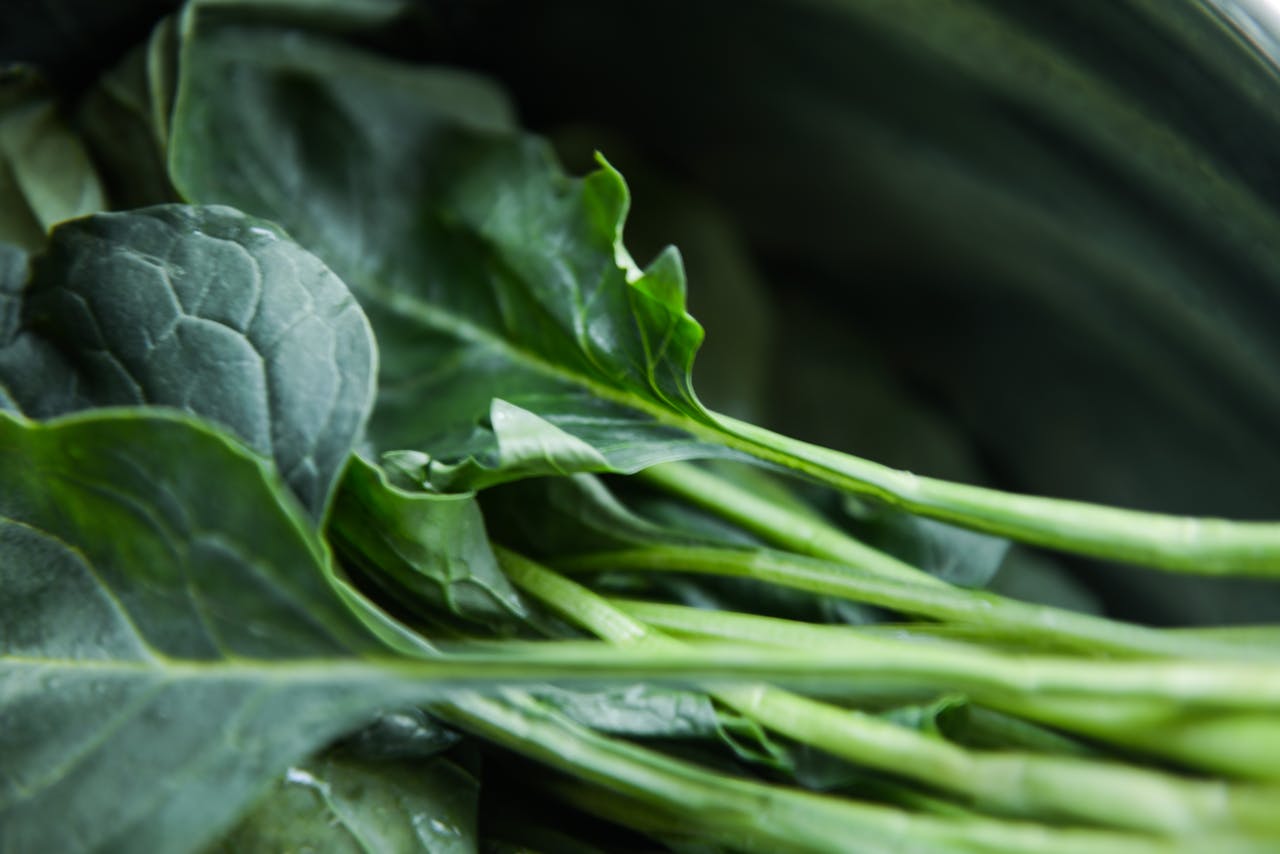
Leafy greens, such as spinach, kale, and Swiss chard, are nutritional powerhouses packed with vitamins A, C, and K, as well as fiber and antioxidants. These greens can help combat inflammation, lower the risk of chronic diseases, and support heart health. Rich in calcium, they also play a vital role in bone health, which becomes increasingly important as we age. Incorporating leafy greens into your meals can be as simple as adding them to smoothies, salads, or stir-fries, making it easy to boost your nutrient intake effortlessly. Studies have shown that increasing the consumption of leafy greens can enhance overall well-being and contribute to a healthier lifestyle.
2. Fatty Fish
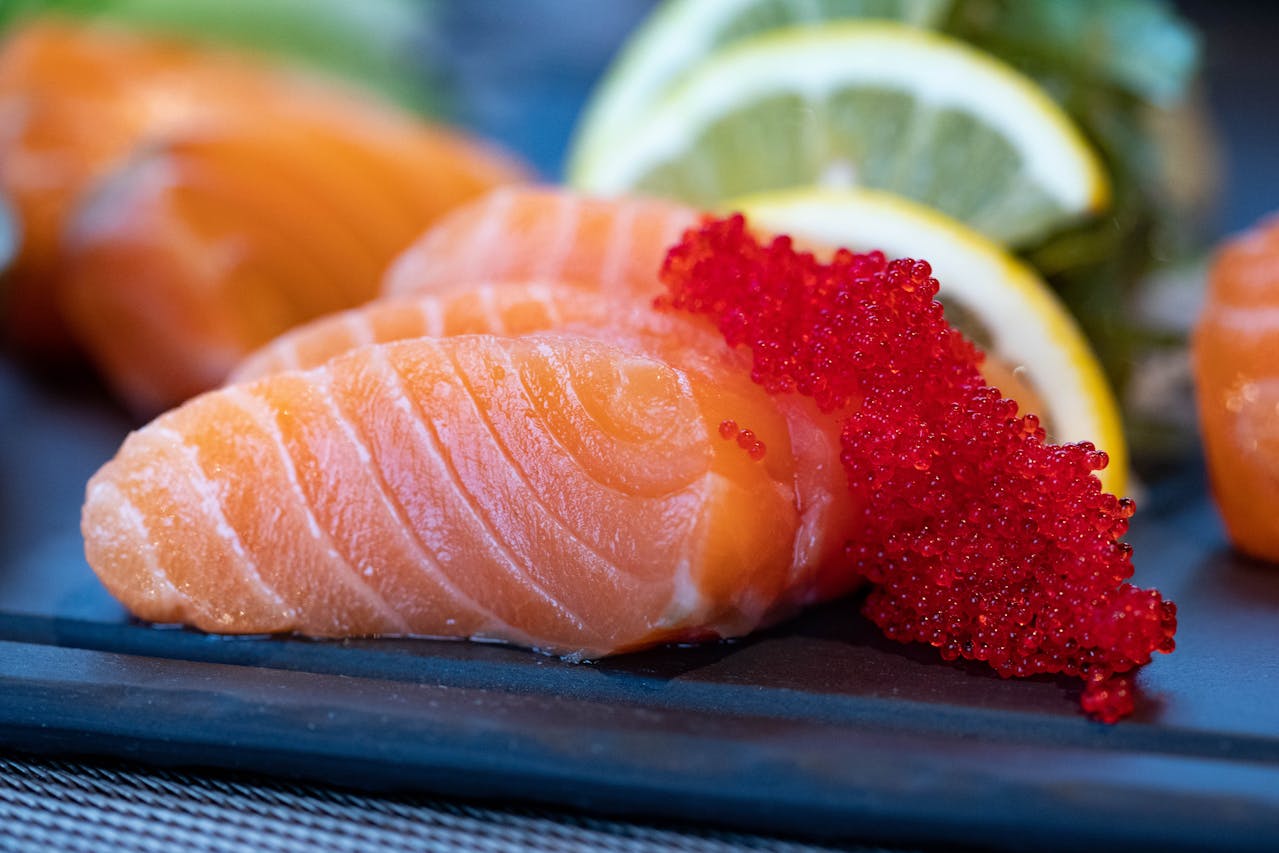
Fatty fish, such as salmon, mackerel, and sardines, are excellent sources of omega-3 fatty acids, which are crucial for heart and brain health. These healthy fats can help reduce inflammation, lower blood pressure, and improve cholesterol levels, significantly benefiting cardiovascular health. Additionally, omega-3s are linked to improved cognitive function and may help protect against age-related mental decline. Aim to include fatty fish in your diet at least twice a week, whether grilled, baked, or added to salads. Research indicates that regular consumption of fatty fish can lower the risk of chronic diseases, including heart disease and stroke, making it an essential addition to your diet in your 50s.
3. Berries
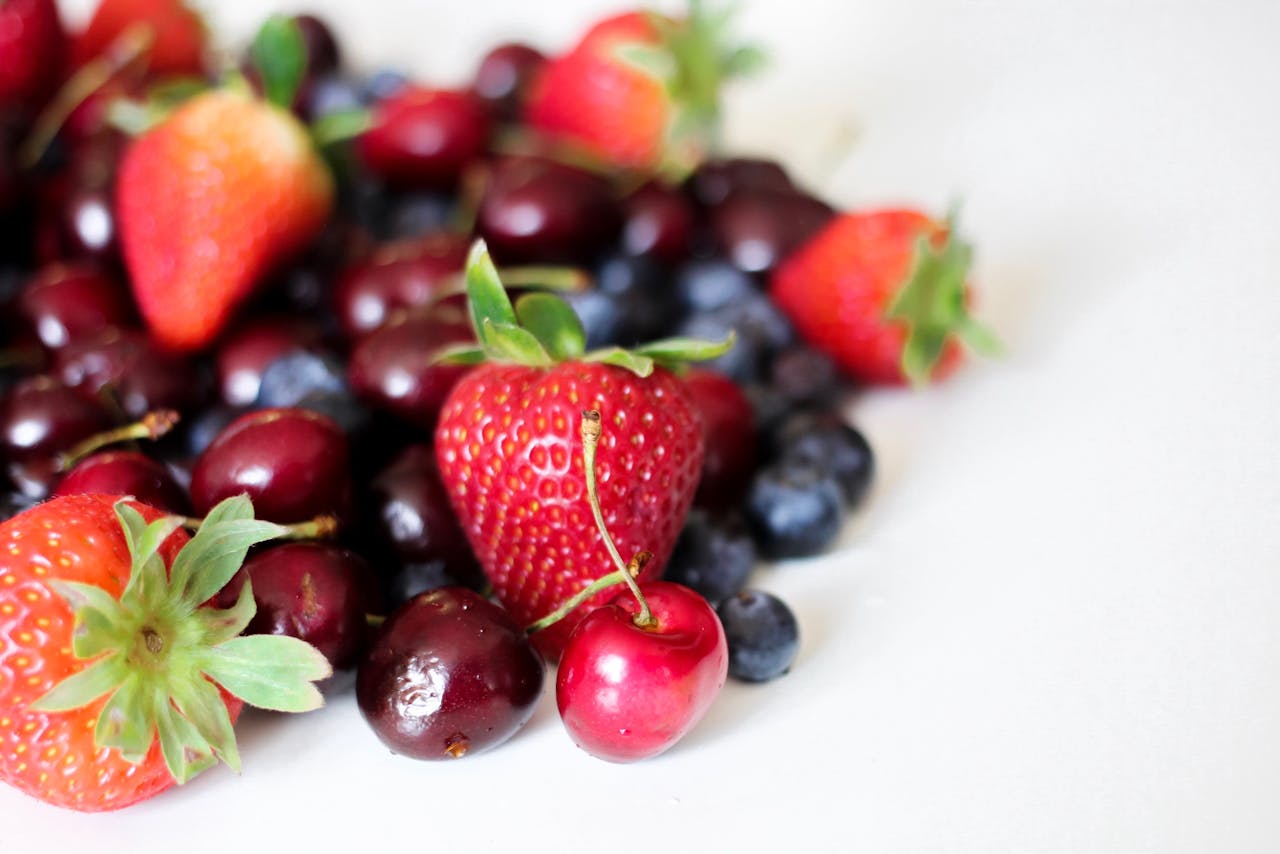
Berries, such as blueberries, strawberries, and raspberries, are rich in antioxidants and vitamins, making them an excellent choice for promoting overall health. The antioxidants found in berries can help fight oxidative stress, reducing the risk of chronic diseases like heart disease and cancer. Furthermore, berries are low in calories and high in fiber, making them an ideal snack for weight management. Incorporating a variety of berries into your diet can enhance your meals, whether in smoothies, salads, or as a standalone snack. Studies have demonstrated that consuming berries regularly can improve memory function and support heart health, underscoring their importance in your 50s diet.
4. Nuts and Seeds
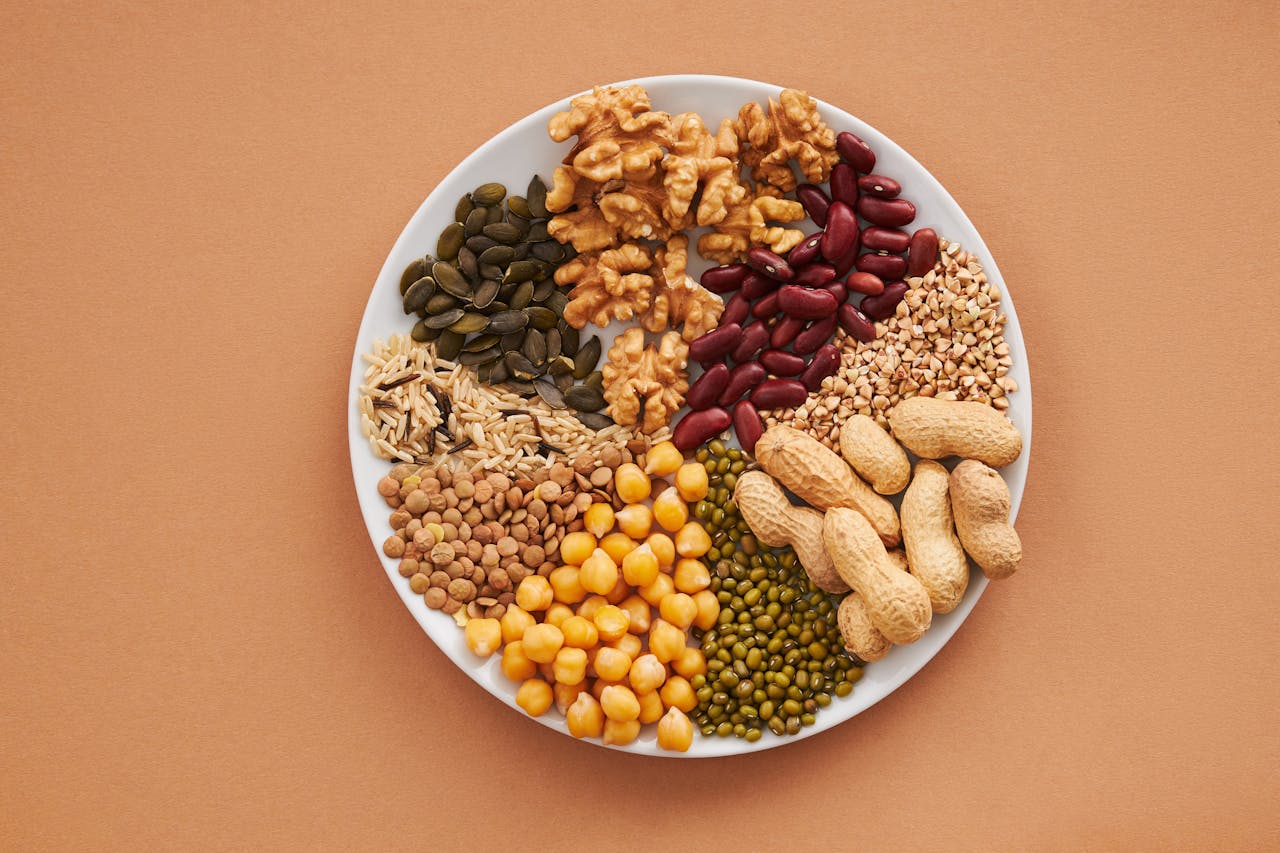
Nuts and seeds are nutrient-dense foods that provide healthy fats, protein, and fiber. Almonds, walnuts, chia seeds, and flaxseeds are particularly beneficial in your 50s. These foods can help lower cholesterol levels, support heart health, and provide essential nutrients like magnesium and vitamin E. Nuts and seeds also have anti-inflammatory properties, which can aid in reducing the risk of chronic diseases. Enjoy a handful of mixed nuts as a snack or sprinkle seeds over salads or yogurt for an added nutrient boost. Research suggests that regular nut consumption can lead to lower rates of heart disease and improved overall health, making them an excellent choice for your dietary regimen.
5. Whole Grains
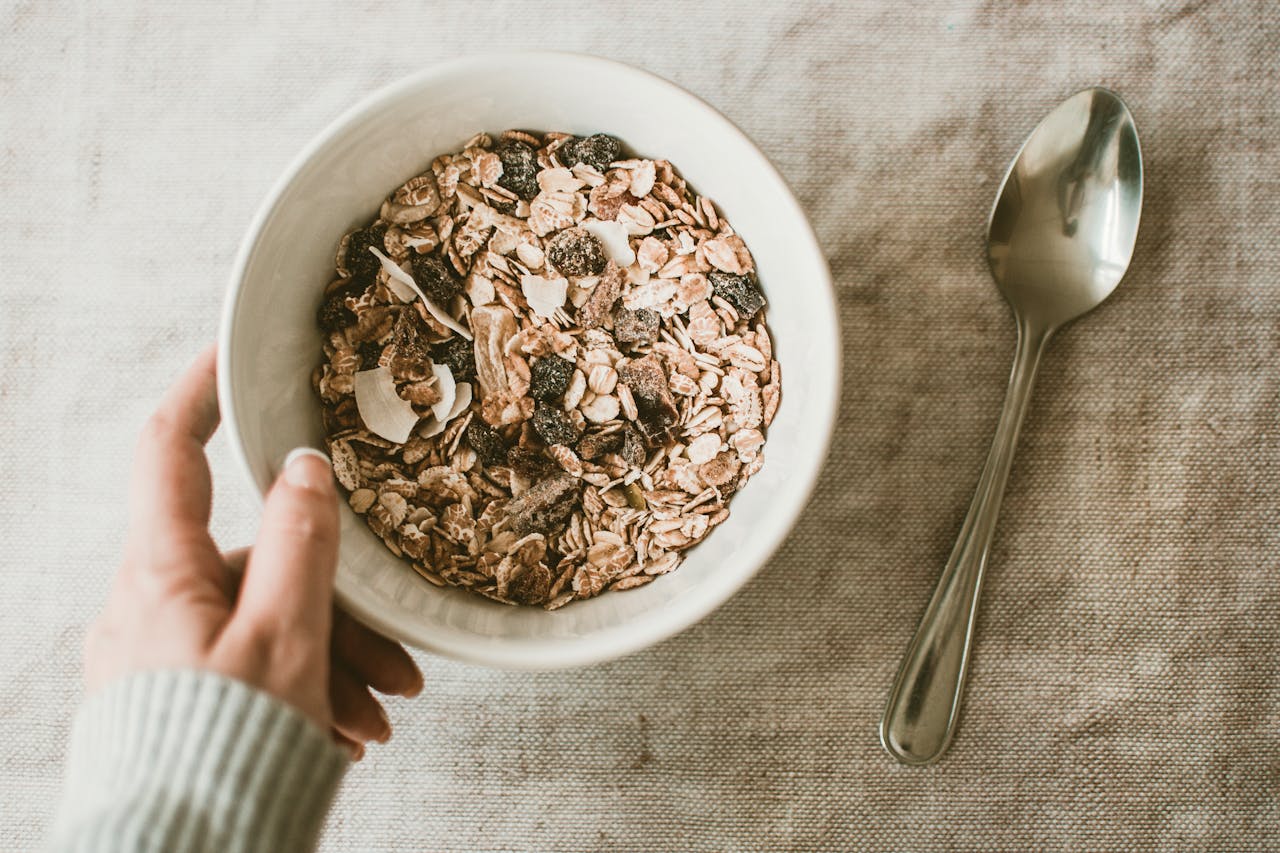
Whole grains, such as quinoa, brown rice, and whole-wheat bread, are rich in fiber, vitamins, and minerals. They can help regulate blood sugar levels, improve digestive health, and lower the risk of heart disease. Fiber is particularly important for maintaining a healthy digestive system and can aid in weight management by promoting a feeling of fullness. Make the switch to whole grains by replacing refined grains in your meals; choose whole-grain bread for sandwiches and opt for brown rice instead of white for a healthier side dish. Research indicates that whole grains are associated with a reduced risk of chronic conditions, including diabetes and cardiovascular diseases, highlighting their role in promoting health during your 50s.
6. Avocado
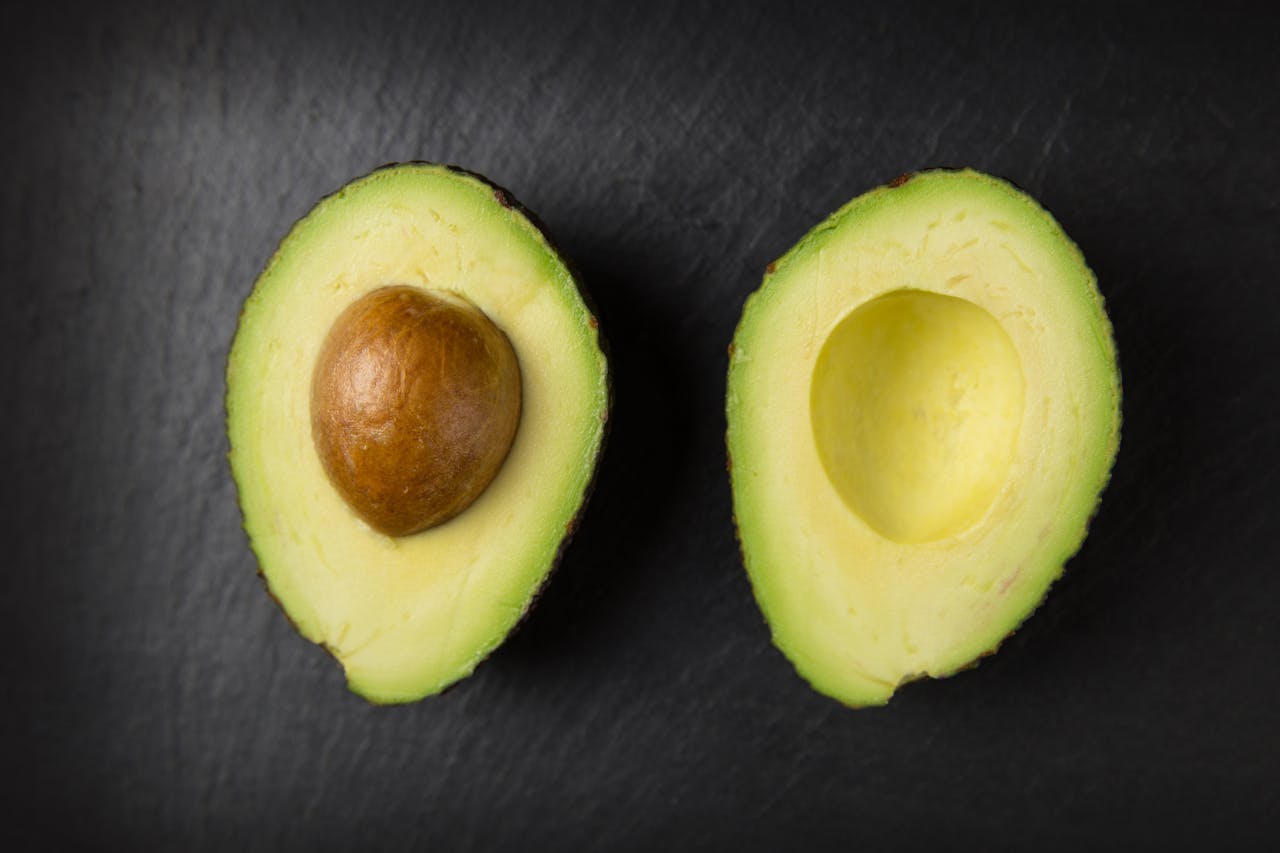
Avocado is a nutrient-dense fruit that is high in healthy monounsaturated fats, fiber, and various vitamins, including vitamin K, vitamin E, and potassium. Its healthy fats can help improve cholesterol levels and support heart health, while its fiber content aids in digestion and promotes a feeling of fullness. Avocado is incredibly versatile; you can enjoy it on toast, in smoothies, or as a creamy addition to salads and salsas. Adding avocado to your meals can enhance flavor and texture while providing significant health benefits. Studies have shown that consuming avocados regularly can lead to improved heart health and better overall nutrition, making it a fantastic addition to your diet in your 50s.
7. Legumes
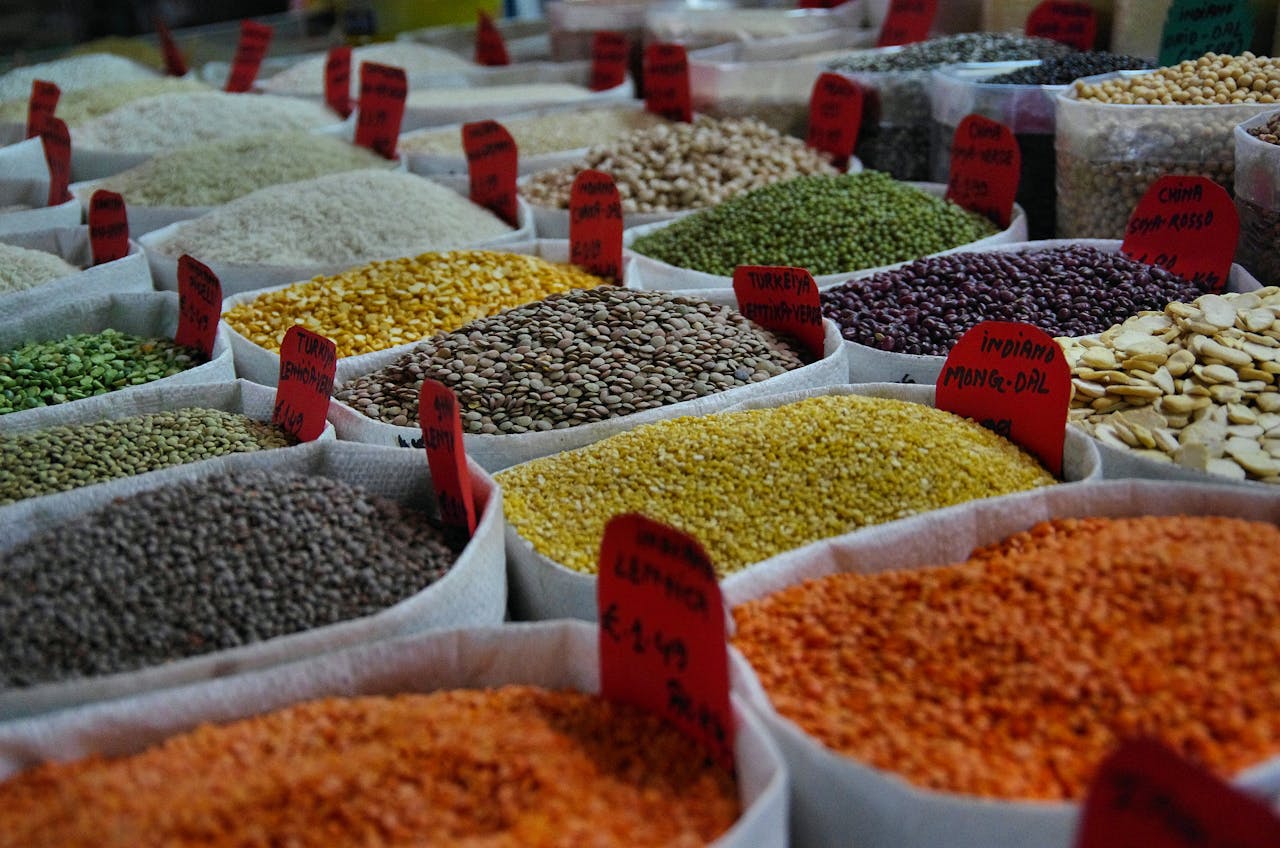
Legumes, such as lentils, chickpeas, and black beans, are excellent sources of plant-based protein, fiber, and essential nutrients like iron and folate. These foods can help regulate blood sugar levels, lower cholesterol, and improve digestive health. The high fiber content in legumes promotes a feeling of fullness, making them a great option for weight management. Incorporate legumes into your diet by adding them to soups, salads, or stir-fries, or try making bean-based dips for a nutritious snack. Research has indicated that regular legume consumption can be associated with reduced risks of heart disease and diabetes, making them a wise dietary choice for those in their 50s.
8. Sweet Potatoes
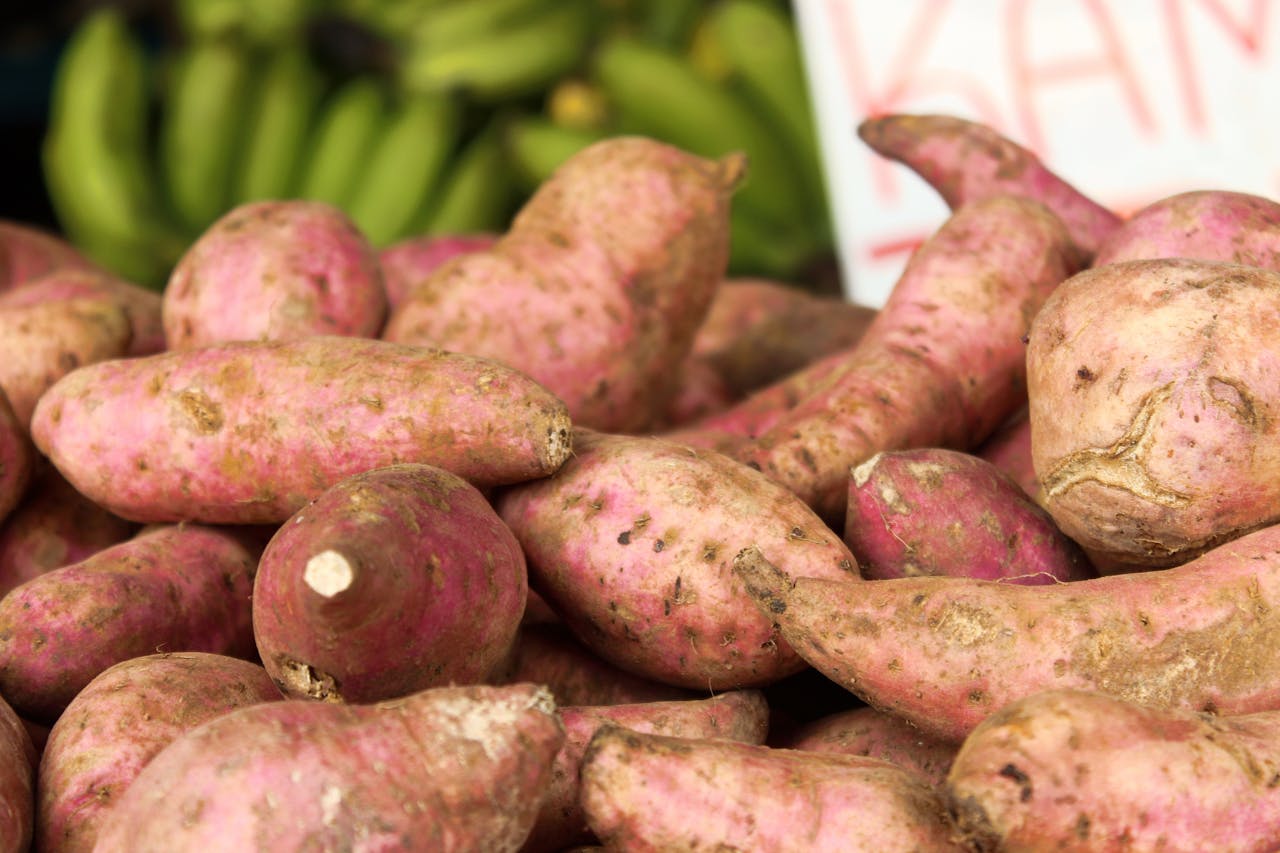
Sweet potatoes are a nutrient-rich root vegetable that provides a wealth of vitamins, minerals, and antioxidants, particularly beta-carotene. They are an excellent source of complex carbohydrates and fiber, making them a healthier alternative to traditional white potatoes. The antioxidants in sweet potatoes may help reduce inflammation and protect against chronic diseases. Enjoy sweet potatoes baked, mashed, or roasted, and consider adding them to salads or as a side dish to enhance the nutritional value of your meals. Studies have shown that sweet potatoes can contribute to better blood sugar regulation and improved digestive health, underscoring their importance in your diet.
9. Greek Yogurt
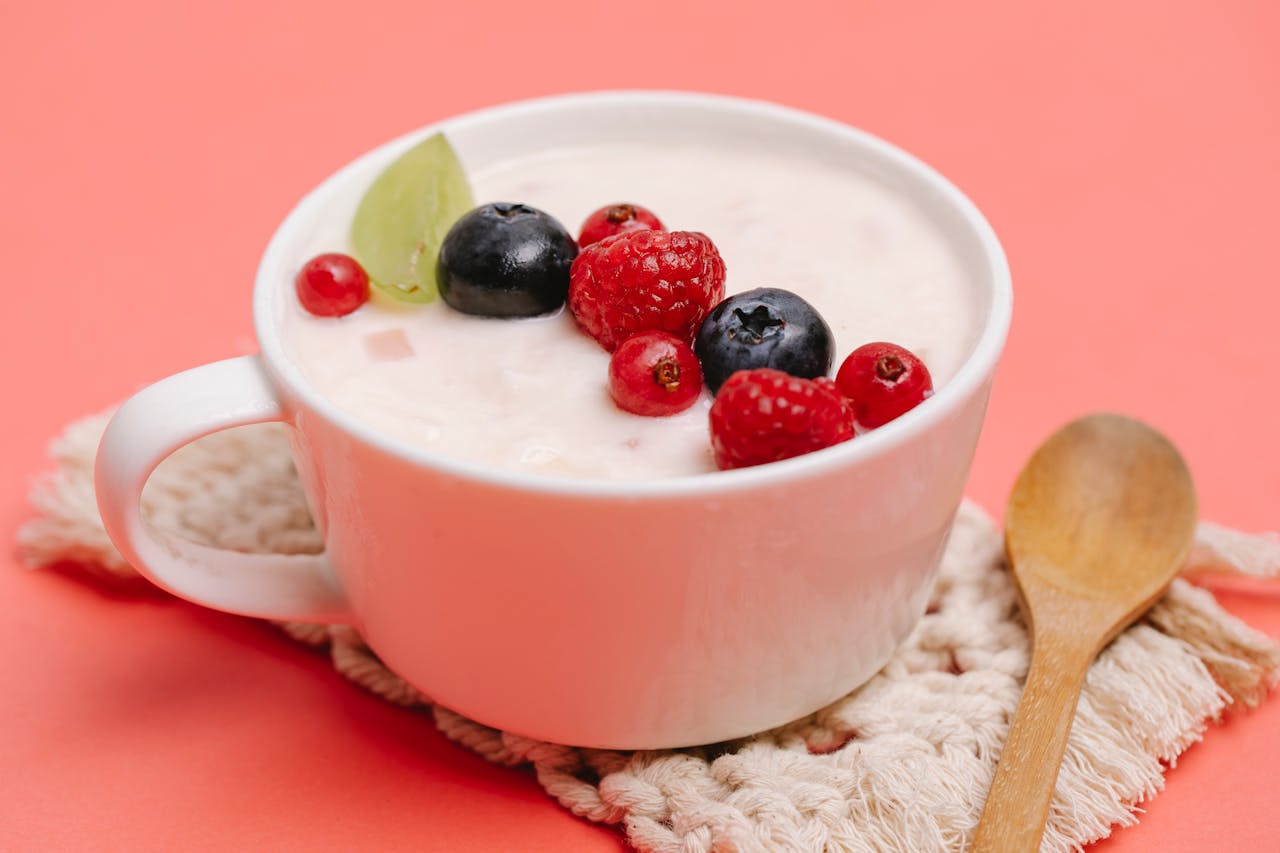
Greek yogurt is an excellent source of protein, probiotics, and calcium, making it a perfect addition to your diet in your 50s. The protein content can help support muscle maintenance and repair, while probiotics promote gut health and enhance digestion. Greek yogurt is also lower in sugar than traditional yogurt options, making it a healthier choice. Enjoy it as a snack, add it to smoothies, or use it as a base for dressings and sauces for a nutritious boost to your meals. Research suggests that consuming yogurt regularly can support digestive health and aid in maintaining a healthy weight, making it an excellent choice as you age.
10. Dark Chocolate
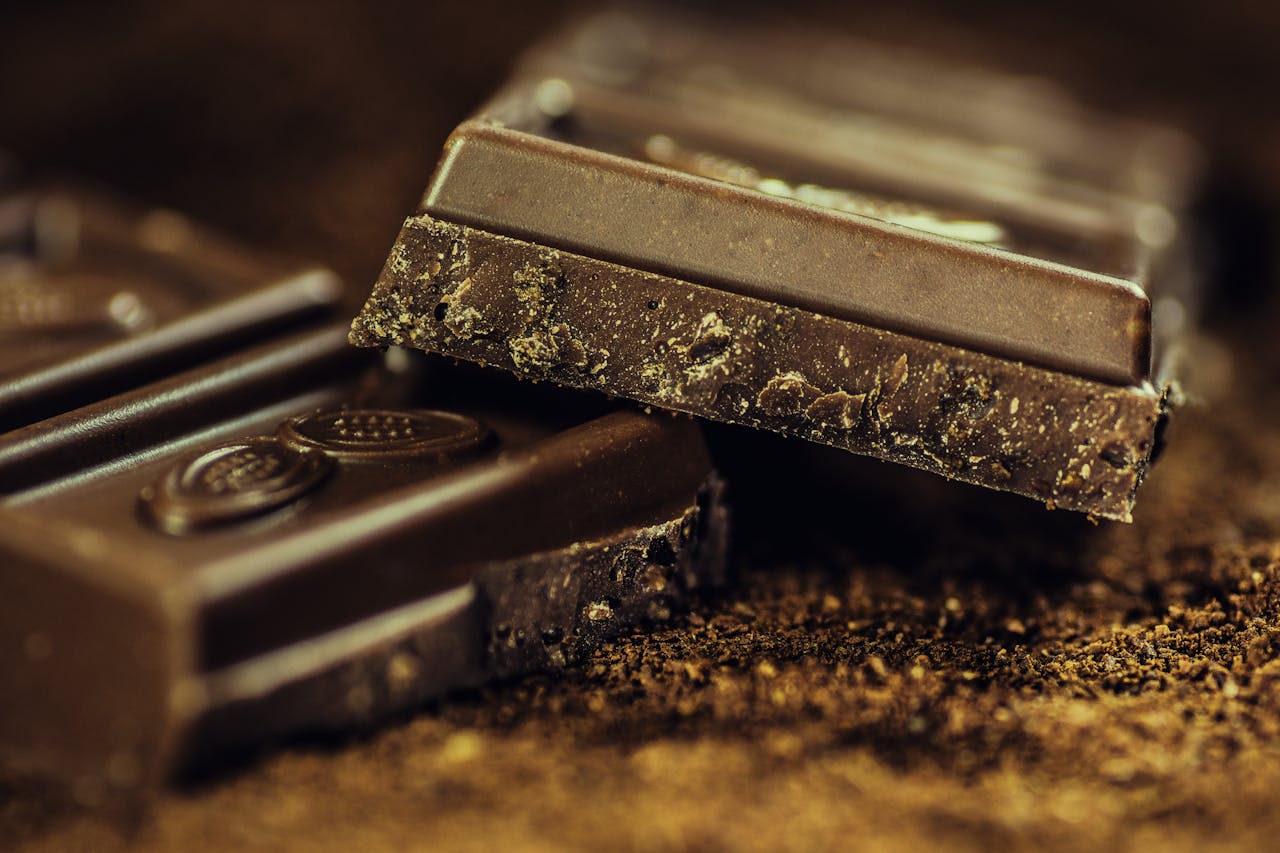
Yes, you read that right—dark chocolate can be a part of a healthy diet! Rich in antioxidants and flavonoids, dark chocolate can provide various health benefits, including improved heart health and better blood flow. The key is to choose dark chocolate with at least 70% cocoa content to reap its health benefits while keeping added sugars to a minimum. A small piece of dark chocolate can satisfy your sweet tooth while providing antioxidants, making it a delightful treat that can fit into a balanced diet. Studies have shown that moderate consumption of dark chocolate can be associated with lower blood pressure and improved cardiovascular health, making it an enjoyable addition to your 50s diet.
Final Thoughts

In your 50s, prioritizing a well-balanced diet rich in these ten foods can significantly impact your health and well-being. Incorporating these nutrient-dense options into your meals not only enhances flavor and variety but also supports your body in maintaining its vitality as you age. Remember, it is never too late to make healthier choices, so start today and enjoy the benefits of a nourishing diet that will serve you well for years to come. By focusing on these foods, you can promote better health, enhance your energy levels, and improve your overall quality of life as you embrace this exciting chapter of your journey. Making these dietary changes can lead to a healthier, happier life during your 50s and beyond.
Leave a Reply